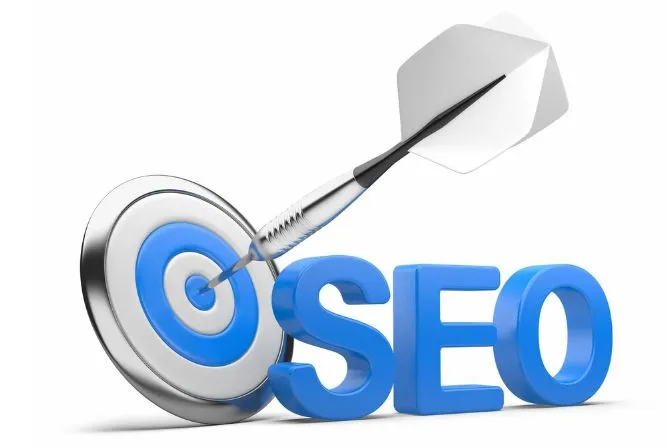In the vast online universe where millions of websites fight for visibility, SEO is the deciding factor on who gets noticed and who gets left behind. But what is SEO, and how does it work? This detailed guide will cover everything, from the fundamentals to advanced techniques, including how to optimize website speed and increase your overall search visibility.
What is SEO?
SEO or Search Engine Optimization is the website optimization process to raise the visibility on search engines such as Google, Bing, and Yahoo. The key objective is to drive more organic (unpaid) traffic by making sure your website comes on top of search results relevant to your searches.When someone searches for something in Google, the search engine relies on complex algorithms to select the most important and useful pages. SEO ensures your site is compatible with those algorithms in order to get higher rankings.
Why is SEO Important?
SEO is important because it:
- Directs organic traffic to your site
- Establish trust and credibility
- Improves user experience
- Provides a better return on investment (ROI) than paid ads
- An optimally optimized website can reach more of your desired audience, turn more visitors into customers, and expand your online presence.
How Does SEO Work?
SEO techniques that support search engine algorithms. The three pillars of SEO are:
-
On-Page SEO
This entails optimizing individual pages so that they are more search-engine friendly. These key elements include:
- Keyword optimization: Using keywords such as SEO and tips to enhance website speed naturally within content.
- Title tags and meta descriptions
- Header tags (H1, H2, H3, etc.)
- Image alt text
- URL structure
- Internal linking
-
Off-Page SEO
Off-page SEO involves external elements affecting your site’s authority and ranks:
- Backlinks: High-quality links from other high-ranking websites
- Social signals: Social media engagement
- Brand mentions and citations
-
Technical SEO
This is the backend optimizations making it easier for search engines to crawl and index your site effectively. Key aspects include:
- Website speed
- Mobile friendliness
- Secure connections (HTTPS)
- XML sitemaps
- Robots.txt file
The Role of Keywords in SEO
Keywords are the base of SEO. They inform search engines about your content. In order to employ them properly:
- Do keyword research with tools like Google Keyword Planner or Ahrefs.
- Write about long-tail keywords (e.g., “how does SEO work for beginners”).
- optimal keyword density (for the main keyword “SEO”) of about 0.75%.
- Don’t use keyword stuffing.
Tips to Improve Website Speed
Website speed is one of the most significant SEO ranking factors and absolutely vital for user experience. The following are some of the best tips to increase website speed:
-
Optimize Images
Large file sizes for images decrease downloading times. Use tools such as Tiny PNG or Short Pixel to compress images.
- Use a Content Delivery Network
- Minify CSS, JavaScript, and HTML
- Turn on Browser Caching
- Select a Good Hosting Provider
- Minimize HTTP Requests
- Lazy Load Images
Only load images when they become visible in the viewport, conserving bandwidth and accelerating page load times.
How Search Engines Rank Website
- How closely content matches search queries
- Page loading speed
- Mobile friendliness
- Domain authority and backlink profile
- User engagement (bounce rate, time on site)
- Freshness and originality of content
Common SEO Mistakes to Avoid
Avoiding common SEO mistakes can save time and improve your results:
- Duplicate content
- Ignoring mobile optimization
- Not using analytics to track performance
- Over-optimizing keywords
- Broken links and poor user experience
Measuring SEO Success
To know if your SEO efforts are paying off, monitor:
- Organic traffic (via Google Analytics)
- Keyword rankings (via SEMrush, Ahrefs)
- Backlink profiles
- Page loading speed
- Conversion rates
Establish specific objectives, like growing traffic by 20% within six months, and monitor your improvement with SEO software.
FAQs
Q1: What does SEO stand for?
SEO stands for Search Engine Optimization, a method of increasing the visibility of a website on search engines.
Q2: How long does SEO take to show results?
Normally, you can observe noticeable results between 3 to 6 months depending on your approach and competition.
Q3: Can I do SEO myself?
Yes, most SEO practices are DIY-friendly, and with plugins such as Yoast SEO, Google Analytics, and Ahrefs, it becomes even easier.
Q4: What is the best way to improve website speed? Compressing images, minimizing code, using a CDN, and choosing a reliable hosting provider are great ways to improve speed.
Q5: Is SEO better than paid ads? SEO provides long-term results and higher ROI, while paid ads offer instant traffic. A combination of both often works best.

